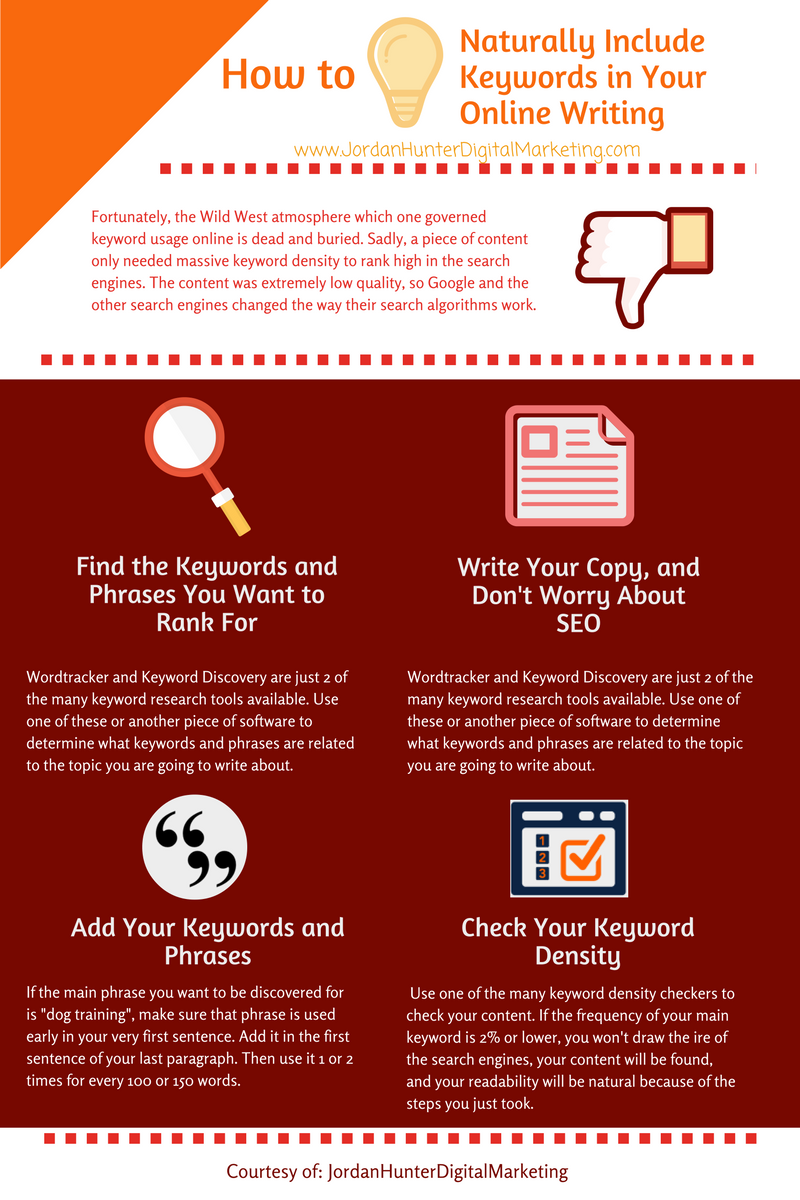
Fortunately, the Wild West atmosphere which one governed keyword usage online is dead and buried. Sadly, a piece of content only needed massive keyword density to rank high in the search engines. The content was extremely low quality, so Google and the other search engines changed the way their search algorithms work.
The ridiculous keyword density of 8% and 10% is a thing of the past. (Keyword density means how often a particular word or phrase is used for every 100 words. An 8% keyword density for the phrase “dog training”, meant that dog training was mentioned 8 times in every 100 words. Ouch!)
However, you still have to tell the search engines exactly what your copy is about. This means including keywords relevant to the topic you are writing about in your online content. You have to do this naturally, so that people actually enjoy reading what you write.
Here’s a quick and easy way to naturally include important keywords in your online writing so the search engines can find your content, while also making it fun and easy to digest.
1 – Find the Keywords and Phrases You Want to Rank For
Wordtracker and Keyword Discovery are just 2 of the many keyword research tools available. Use one of these or another piece of software to determine what keywords and phrases are related to the topic you are going to write about.
2 – Write Your Copy, and Don’t Worry About SEO
Search engine optimization (SEO) is important if your content is going to get found by the search engines. However, to naturally weave keywords and phrases related to your topic into your content, it is best to simply write the content first, without SEO considerations. Create a high quality, informative, problem-solving piece of content.
3 – Add Your Keywords and Phrases
After you have created an informative and easy to read piece of content, you need to help the search engines find it. If the main phrase you want to be discovered for is “dog training”, make sure that phrase is used early in your very first sentence. Add it in the first sentence of your last paragraph. Then use it 1 or 2 times for every 100 or 150 words. Reread your content. Make sure that your keyword placement doesn’t come at the cost of readability.
4 – Check Your Keyword Density
As we mentioned above, keyword density is not nearly as important now as it used to be. So you don’t want to overdo it. Type “free keyword density analyzer” into Google. Use one of the many keyword density checkers to check your content. If the frequency of your main keyword is 2% or lower, you won’t draw the ire of the search engines, your content will be found, and your readability will be natural because of the steps you just took.







